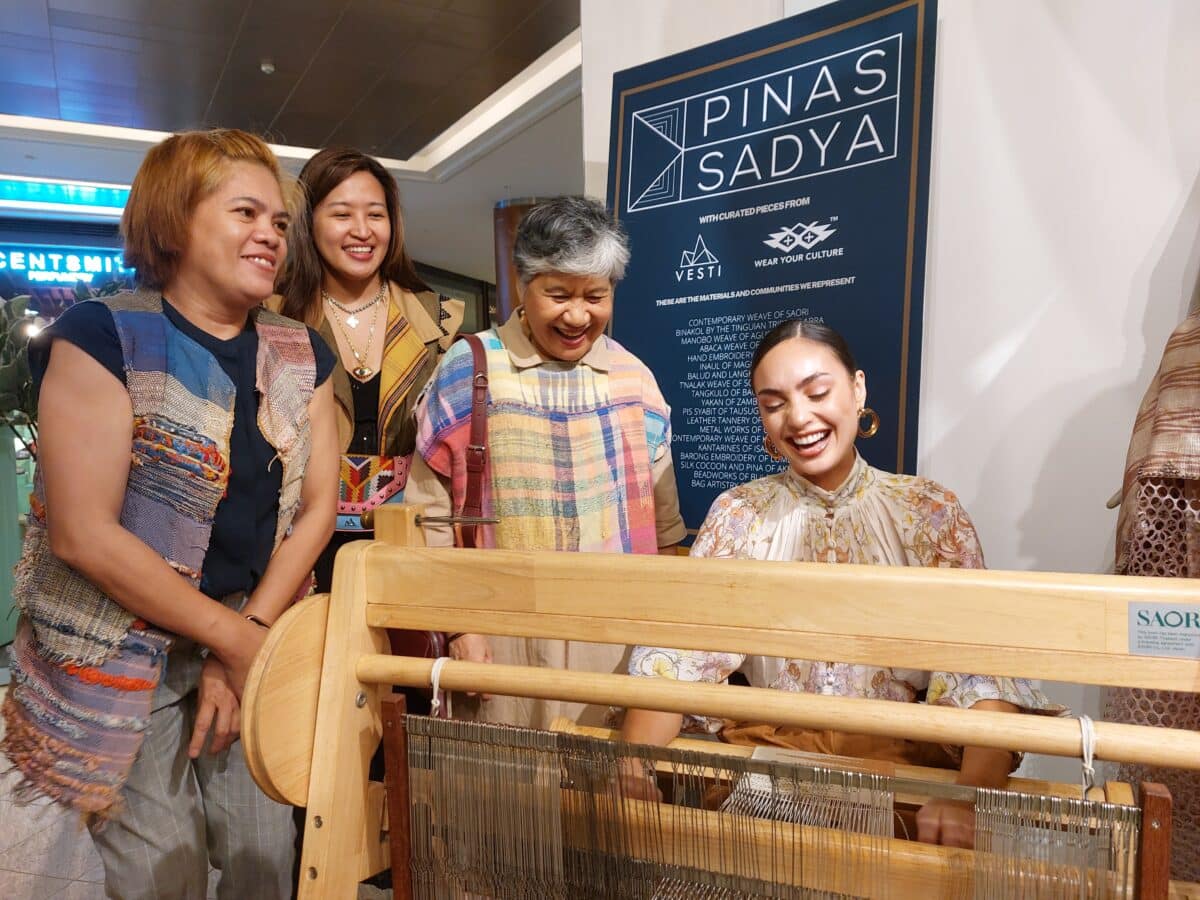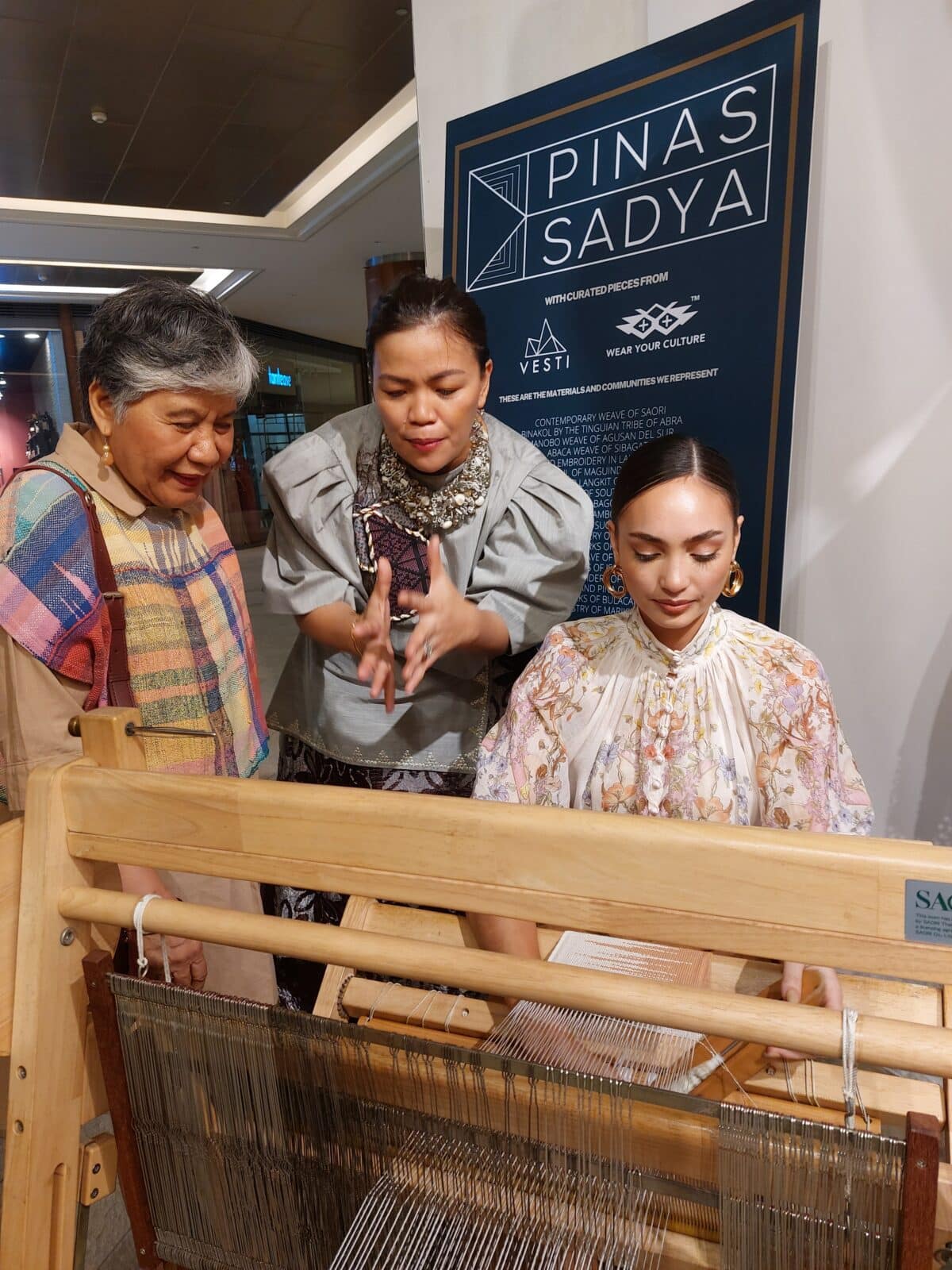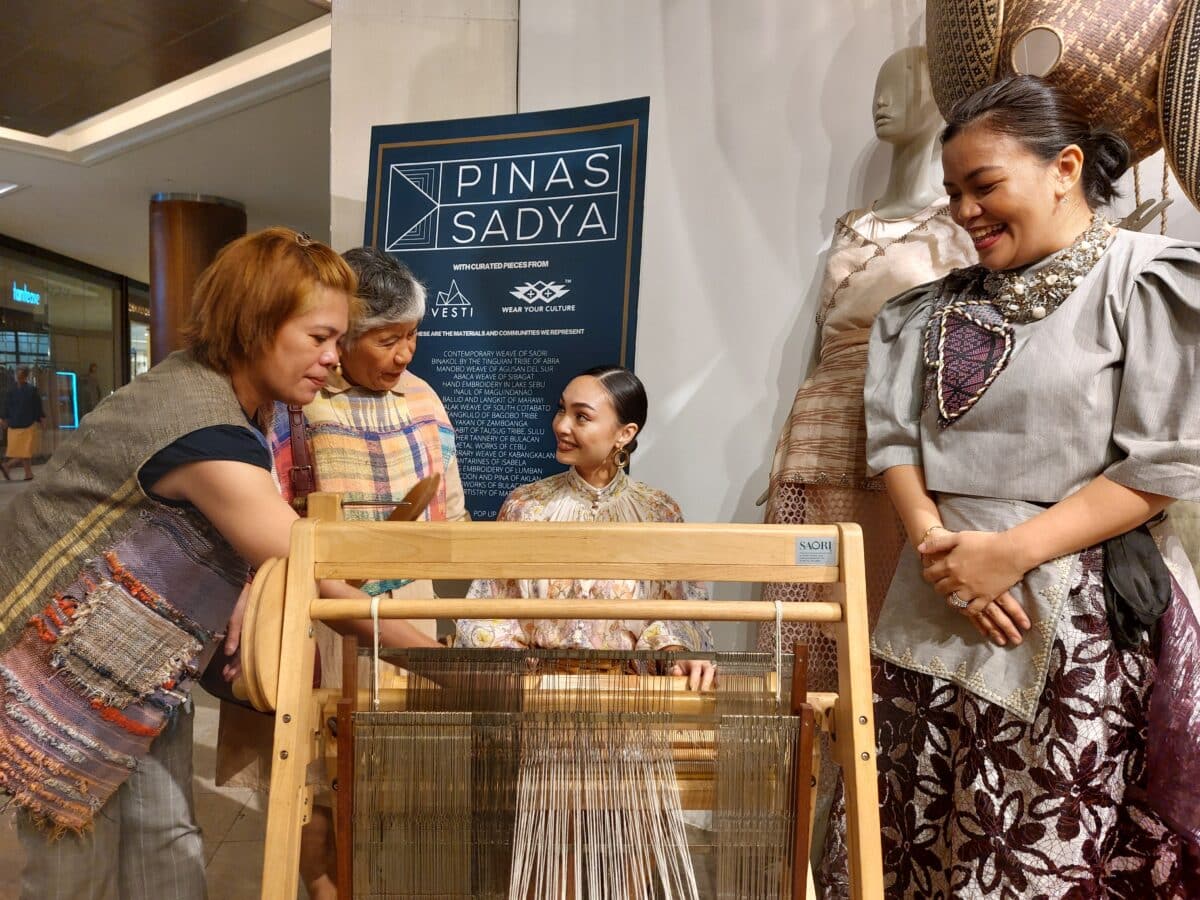– 18 hours ago

R’Bonney Gabriel (right) learns new techniques with the hand loom from Saori Philippines weaving trainer Becky Santiago (second from right) as weaver Jo Bernabe (left) and Vesti Bags designer Martha Rodriguez look on. Image: Armin P. Adina/INQUIRER.net
Filipino-American sustainable fashion designer and 71st Miss Universe winner R’Bonney Gabriel has been in the Philippines for months now, taking on hosting jobs and exploring the country’s fashion and culture. And she has gained new skills along the way, one of which is weaving indigenous fabrics.
The beauty queen tried using two different hand looms at the Pinas Sadya pop-up store in Rockwell Center in Makati City when it opened on July 15 — one machine was a conventional type with pedals, while the other one was designed for individuals with disabilities and had hand-operated levers instead.
“You know it was easy to learn. I know I only did it a little bit, but I can definitely see it being very therapeutic. Because when I’m at home, sometimes I’m just sewing, and I just listen to music. I could do that for hours and hours. And I think the same with a hand loom,” Gabriel told INQUIRER.net.
She will bring her finished fabric back to the United States to incorporate it into her design, but there is another thing that she wants to take home, the hand loom itself. “I would love to have one one day. I think it’s really cool. I’ve tried it before, but I learned a new technique today,” Gabriel shared.

R’Bonney Gabriel (right) gets weaving tips from Saori Philippines weaving trainer Becky Santiago (left) and Pinas Sadya founder Skeeter Labastilla-Turgut. Image: Armin P. Adina/INQUIRER.net
The Texas-based beauty said there were several ideas coming to her mind already, and she could use the woven piece in a handbag or combine it with another fabric. “I love denim. So I would love to do something like that. But yeah, I could go on and on about different ideas,” she said.
“As a fashion designer, I think the design aspect and the craftsmanship should really be highlighted on the global stage. And I think it’s definitely possible. I hope I can help in doing that,” Gabriel said when asked about her thoughts on Filipino fashion pieces.
“Sustainable fashion design is more than just recycling materials. It’s also being purposeful and intentional with clothing. It’s not just making clothing because they’re beautiful. And all the designers here are really supporting communities, in communities where you came from as well. And these are slow techniques that can’t be made extremely fast and in big production, so they’re very special. And for me, I love seeing it,” she added.
The store showcases the contemporary weave of Soari, binakol by the Tinguian tribe of Abra, Manobo weave of Agusan del Sur, abaca weave of Sibagat, hand embroidery in Lake Sebu, inaul of Maguindanao, balud langkat of Marawi, t’nalak weave of South Cotabato, tangkulo of the Bagobo tribe, yakan of Zamboanga, pis syabit of Sulu’s Tausug tribe, leather tannery of Bulacan, metal works of Cebu, contemporary weave of Kabangkalan, kantarines of Isabela, barong embroidery of Lumban, silk cocoon and piña of Aklan, beadworks of Bulacan and bag artistry of Marikina.
“I’m going crazy. I love stores like this, they’re just so unique. I mean, all of the pieces really tell a story without even saying anything. You can look at the mixture of the patterns. And for me as a Filipino-American, I grew up in America, and one of my goals coming here was to learn more about Filipino culture, and a store like this is doing just that,” said Gabriel of the Pinas Sadya store, which also carries curated pieces from Vesti and Wear Your Culture.

R’Bonney Gabriel (second from right) learns weaving from Saori Philippines weaving trainer Becky Santiago (second from left) and weaver Jo Bernabe (left) as Pinas Sadya founder Skeeter Labastilla-Turgut looks on. Image: Armin P. Adina/INQUIRER.net
She said she has discovered a lot about Filipino fashion and cites abaca as her “newest obsession.” She has also observed that each region of the Philippines has different embroidery patterns and techniques, “so it’s so diverse as well.”
Gabriel said she believes the world needs to see more of Filipino fashion. “I’m always speaking about it. I’m always trying to wear pieces that are locally made. And I love to tell the story behind them because these pieces are so special,” she said.
“It’s visiting stores like this, meeting with the actual designers, and hearing where they came from, what the purpose of their designs are, and sharing that story through my platforms, their store visits, their videos through content, just really spreading the word as much as I can,” Gabriel added.

